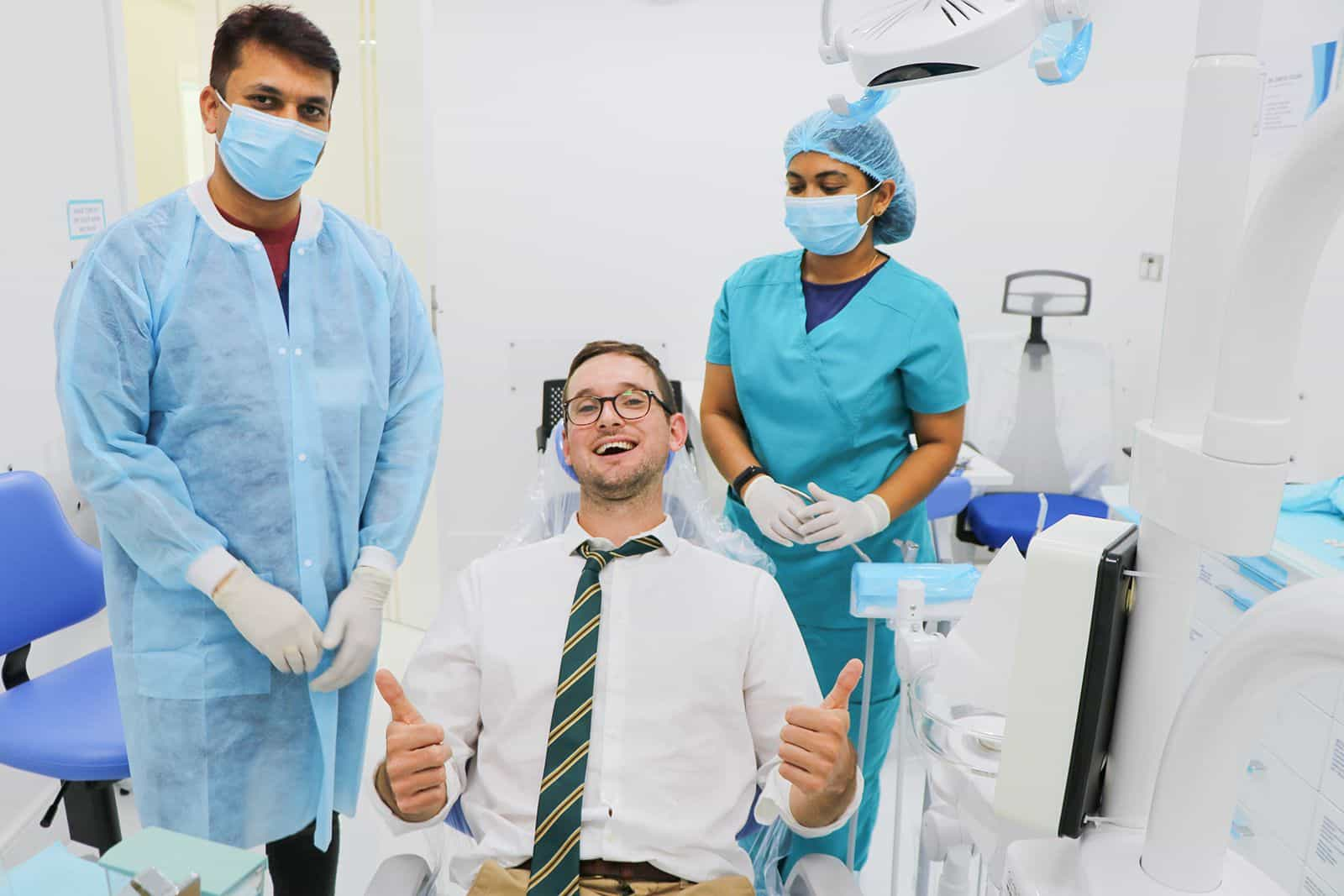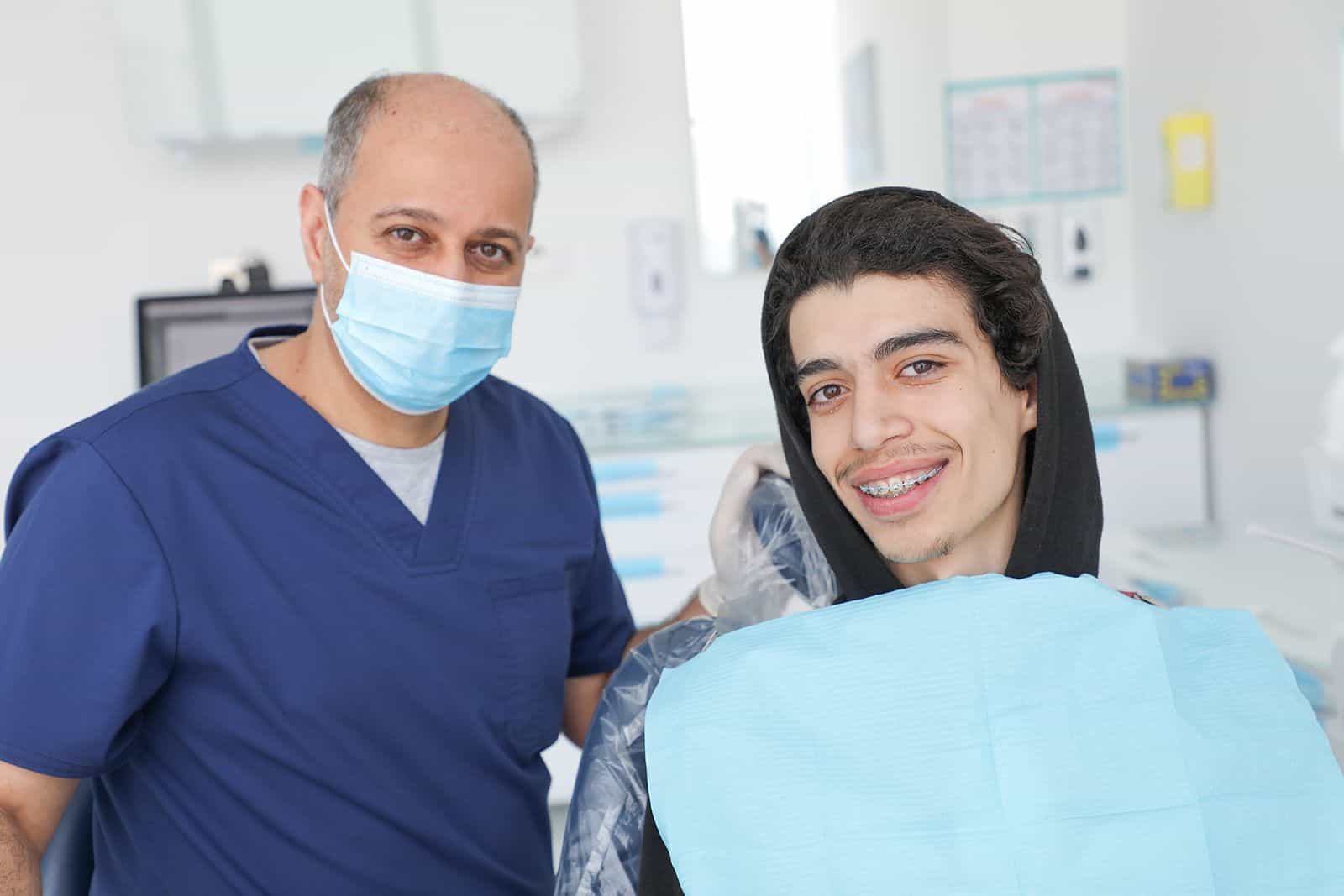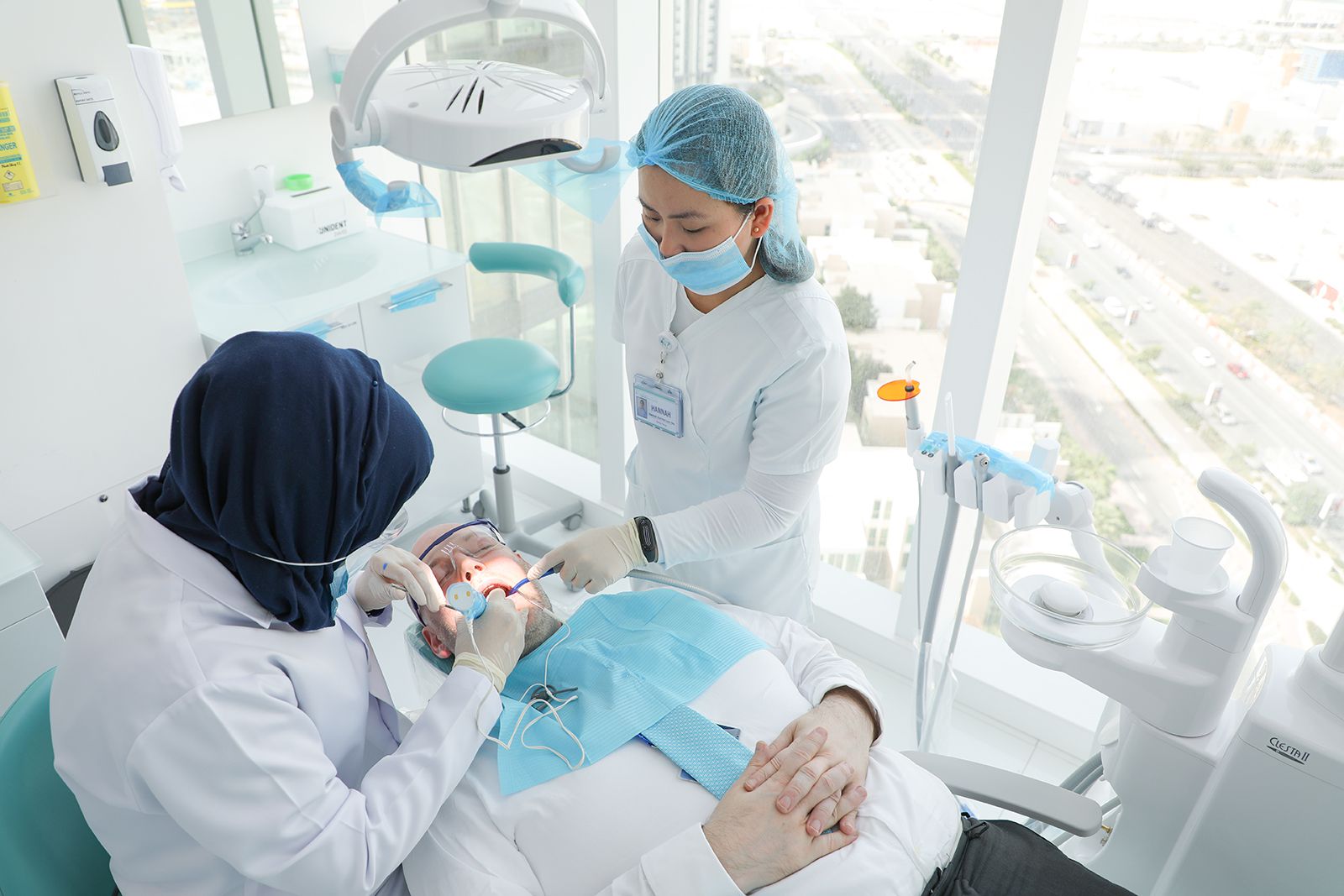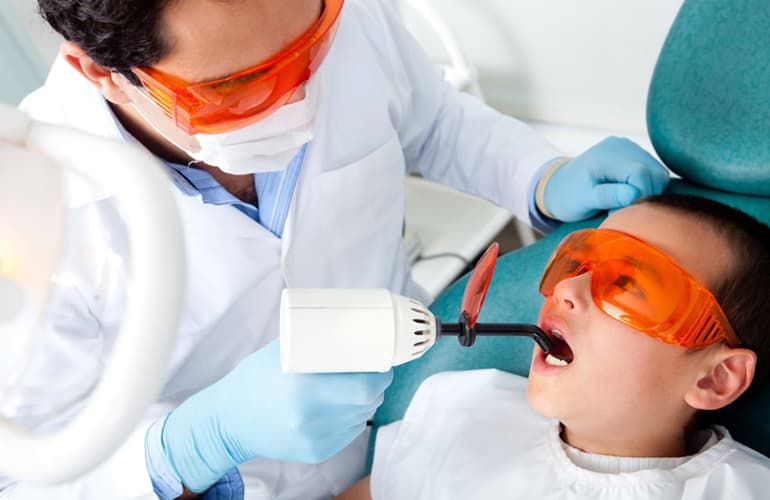
TOOTH EXTRACTION
At Oaiss Braces Center, our main goal is to preserve and
keep your natural teeth strong and healthy for life. If your
tooth has been damaged by decay or trauma, our dentists will
try to restore it conservatively with a filling, crown or
other treatment options. However, when the damage is too
severe to be restored and a root canal treatment is not
possible to save your tooth, your dentist may recommend a
tooth extraction. Tooth extraction is typically a short
procedure performed by the dentist.
Our dentists are experts on pain management and they will
make sure you feel comfortable during the entire
appointment.
Other reasons for tooth extraction:
- Orthodontic treatment – There are times when there is not enough space in the jaw for all the teeth to fit in. Your orthodontist will tell you if there’s a need to create some room for teeth that are being moved in place.
- Impacted wisdom tooth – Your wisdom teeth may need to be removed if they are infected, decayed or causing pain. Wisdom teeth are often impacted or surrounded by bone and need to be removed.
- Pediatric teeth development – If a baby tooth is blocking a permanent adult tooth from coming into its correct position, your dentist may suggest tooth extraction. Without extraction, the permanent tooth may grow misaligned and not erupt normally. This may lead to difficult maintenance of oral hygiene and the development of caries



What precautions should I take after extraction?
Avoid hot food or drinks until the anesthetic wears off.
This is important as you cannot feel pain properly and may
burn or scald your mouth. Also be careful not to chew your
cheek, which can happen while you’re numb and unable to
feel.
Should I rinse my mouth out?
Do not be tempted to rinse the area for the first 24 hours.
It is important to allow the socket to heal, and you must be
careful not to damage the blood clot by eating on that side
or letting your tongue disturb it. This can allow infection
into the socket and affect healing.
Is there anything else I should avoid?
Avoid alcohol for at least 24 hours, as this can encourage
bleeding and delay healing. Eat and drink lukewarm food as
normal but avoid chewing on that area of your mouth.
When should I brush?
It is just as important, if not more so, to keep your mouth
clean after an extraction. However, you do need to be
careful around the extraction site. Brush gently so as to
not disturb the blood clot and delay healing.
What do I do if I’m still bleeding?
The first thing to remember is that there may be some slight
bleeding for the first day or so. Many people are concerned
about the amount of bleeding. This is due to the fact that a
small amount of blood is mixed with a larger amount of
saliva, which looks more dramatic than it is. If you do
notice bleeding, do not rinse out, but apply pressure to the
socket. Bite firmly on a folded piece of clean cotton
material such as a handkerchief or round cotton pads for at
least 15 minutes. Make sure this is placed directly over the
extraction site and that the pad is replaced if necessary.
If the bleeding has not stopped after an hour or two,
contact your dentist. .
How soon can I smoke?
It is important not to do anything which will increase your
blood pressure, as this can lead to further bleeding. We
recommend that you avoid smoking for as long as you can
after an extraction, but the minimum is 3 days
Is there anything I can do to heal faster?
Different people heal at different speeds after an
extraction. It is important to keep your mouth and the
extraction site as clean as possible, making sure that the
socket is kept clear of all food and debris. Don't rinse for
the first 24 hours, and this will help your mouth to start
healing. After this time, use a salt-water mouthwash, this
helps to heal the socket. A teaspoon of salt in a glass of
warm water gently rinsed around the socket twice a day can
help to clean and heal the area. Keep this up for at least a
week or for as long as your dentist tells you.
I’m in pain, what should I take?
There will usually be some tenderness in the area for the
first few days, and in most cases some simple pain relief is
enough to ease the discomfort. What you would normally take
for a headache should be enough. However, always follow the
manufacturer's instructions and if in doubt check with your
doctor first. Do not take aspirin, as this will make the
extraction site bleed.
Are there any medicines I should avoid?
Aspirin should be avoided because it can thin the blood
slightly. Asthma sufferers should avoid Ibuprofen-based pain
relief.
I am still in pain, what could it be?
Sometimes an infection can get in the socket, which can be
very painful. This is when the bony socket walls are exposed
and become infected. This is called a dry socket, and in
some cases, it is worse than the original toothache. You may
also feel the sharp edge of the socket with your tongue and
sometimes small pieces of bone may work their way to the
surface of the socket. This is perfectly normal. In this
case, it is important to see your dentist, who may place a
dressing in the socket and prescribe a course of antibiotics
to help relieve the infection.
Will my dentist need to see me again?
If it has been a particularly difficult extraction, the
dentist will give you a follow-up appointment. This could be
to remove any stitches that were needed, or simply to check
that the area is healing well. Your dentist will also want
to discuss the options available for you to replace your
lost tooth

